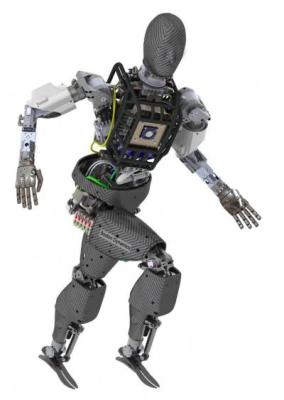Nov 9 2012
Ben-Gurion University of the Negev (BGU) is the only foreign university team (on Track B) competing for the prestigious U.S. Defense Advanced Research Project Agency (DARPA) Robotics Challenge.
 Boston Dynamics’ Atlas robot, courtesy of DARPA
Boston Dynamics’ Atlas robot, courtesy of DARPA
Boston Dynamics’ Atlas robot, courtesy of DARPABGU’s team “Robil” is developing software to control the GFE (government-funded equipment) Platform being developed by Boston Dynamics, Inc., based on its Atlas humanoid robot and modified to meet the needs of the DARPA Robotics Challenge. The team received a $379,000 grant to develop disaster response control software.
According to the DARPA Web site, the devastation from disasters such as Fukushima, the Deepwater Horizon oil spill and the Chilean Copiapó mine collapse all serve to highlight fragility in the presence of unforeseen events.
The Web site states, “The DARPA Robotics Challenge program will help directly meet these needs by developing robotic technology for disaster response operations.
"This technology will improve the performance of robots that operate in the rough terrain and austere conditions characteristic of disasters, and use vehicles and tools commonly available in populated areas. It will also work in ways easily understood by subject matter experts untrained in the operation of robots, and be governed by intuitive controls that require little training.”
Often, subject matter experts are available with the knowledge to prevent further damage, yet are unable to get close enough to complete their mission – be it from nuclear contamination, intense pressure, structural instability, or many other threats to human safety.
“Robil’s team is an ad-hoc consortium led by Ben-Gurion University and comprised of the leaders of the Israeli robotics industry (IAI and Cogniteam) and academia (BGU, Bar-Ilan University, Technion-Israeli Institute of Technology),” explains Robil team leader Prof. Hugo Guterman of BGU’s Department of Electrical and Computer Engineering. It includes 20 key personnel and over 40 graduate students and engineers.
BGU has achieved worldwide recognition in robotics with advanced laboratories where substantial, cutting-edge research is conducted in cooperation with leading international research groups.
With more than 20 years of accumulated experience, BGU is a leader in the field, with scientists conducting applied research in robotics technologies relevant to agricultural, industrial, safety, and security tasks, as well as basic research in mechanical design, algorithms, cognition, and neurosciences.